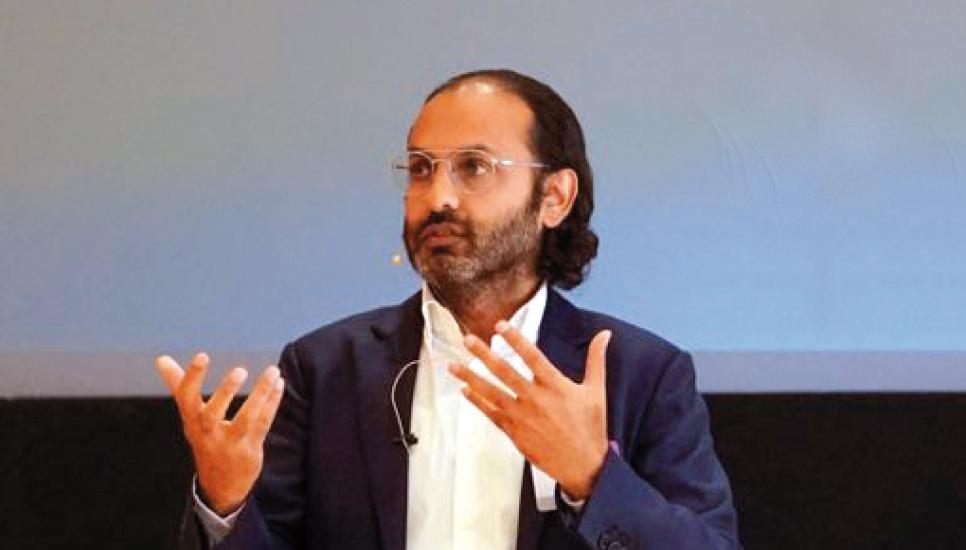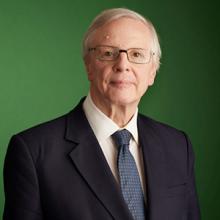The key to family longevity

Feisal Alibhai, Qineticare founder and chief executive, reveals why a focus on the wellbeing of the family is the missing piece in the ability to achieve robust succession planning
To protect a family’s longevity, shrewd principals engage in detailed succession planning, which is vital to demonstrate true caring and love. Despite this meticulousness, succession continues to fail at an unacceptable rate, with wealth too often wiped out by the third generation.
Yet financial aspects are the cause of succession failure in only 3% of cases, according to Roy Williams and Vic Preisser in a study they carried out on 3,250 families who had lost their wealth. Communication challenges account for 60% of failures, with another 10% due to lack of trust among family members. Campden Research anecdotally puts a lack of communication as a significant root cause for succession planning failure, along with a lack of preparedness and training.
While we obviously love our family and want to go out of our way to ensure we care for them, our focus hasn’t always been on the individuals who make up the family—and yet they are the ones who will preserve the family’s wealth and legacy. In reality, most of our time, energy and resources are allocated to the family business and the family office.
This raises the question, “If we are to truly care for the family, how might we extend our planning to incorporate the wellbeing of the family members themselves?
Wellbeing as an asset
In the same way families create trusts to protect their financial assets, we also need to consider protecting the wellbeing of each individual. This should encompass their physical, mental, and emotional health, along with the quality of their relationships—an aspect that’s foundational for effective communication and building trust.
Let’s reflect on the use of a typical family trust. The challenges we face lie much more in the wellbeing space than in the financial. It is here above all that we must ‘walk the talk’, ensuring that our actions are aligned with what we say regarding loving and caring for the family’s longevity and generational continuity. Only in this way will the purpose of our succession planning be brought to fruition.
Is our approach to the wellbeing of our family proactive or reactive? When we wait for a crisis before taking action, we act in the opposite way we approach the family’s finances.

Medical concierge services are a great means of accessing quality care and undivided attention. Access to the best wellness experts is an incredible way to improve our physical health. Coaches and mentors are an excellent support system as we journey through life. But all of these operate in silos, with each member of the family sourcing them individually. What is truly needed is a comprehensive platform that allows us to address the family’s wellbeing with the preparedness each deserves.
Wellbeing has many aspects. Whether we are talking about an eating disorder, addiction, a tendency to be physically inactive, difficulty sleeping, or feeling emotionally frozen, we are prone to inertia, procrastinating on issues until they reach crisis point, by which time it is often too late to act in an optimal way.
Take for instance the fact that to raise issues that have the potential to disrupt generational longevity is often taboo. Whatever the nature of a problem, we need to be able to address it before it becomes so entrenched that it is extremely challenging to resolve.
As I discovered when I was just 35, our health can fail unexpectedly at any age. Despite annual check-ups, I learned I had stage three cancer that had metastasized into 10 tumours. How to move from being told it’s “game over” to giving myself a slim shot at survival?
Given that I was initially misdiagnosed, who could I trust to guide me? I had no idea where to turn and had to figure it all out for myself, one step at a time, opting for 20 rounds of chemotherapy that were followed by three surgeries.
After an 11-month challenge, I vowed to ensure my two little boys never had to walk such a lonely path. I determined to create a system and structure for them whereby the guidance and support I so desperately lacked would be just a phone call away.
Neither would this system be tailored only to major threats to our wellbeing. I had seen the stress my mother endured when, because my father frequently travelled on business, she had to cope without support with the many mishaps that landed me in hospital when I was young—a third-degree stomach burn, a sprained ankle, a fractured wrist from soccer, three crushed bones in my back from a fall attempting to do pull-ups, and the occasion when I almost died from ingesting 17 iron pills thinking they were candy.
In addition to the very best medical care, we need the insights emerging from those professionals who go beyond reactive medical protocols. When my DNA test for a genetic predisposition to cancer came back clear, I needed to understand how this disease came about. With the right guidance, I learned that I had brought the cancer on myself through my driven ways. The integrative doctors’ advice that I sought also showed me how to optimise my nutrition, support my emotional state, and balance my entire lifestyle in order to fortify my immune system.
Wealth and health planning
To facilitate an optimal approach to health and wellbeing, should not we all have access to a support structure tailored for this purpose? This would enable the family to thrive in a manner aligned with its extensive financial planning.
I wanted my boys to have access to the best support available, not just check-ups and reactive treatment. We teach our children the importance of physical hygiene—the need to shower and brush their teeth. Why then don’t we advocate a parallel regimen in terms of their mental, emotional, and relational wellbeing? The absence of such is a reason teens with an otherwise promising future are frequently in distress, with no small number disconnecting themselves from family and society. Why wait until things go pear-shaped to seek skilled help for them?
And how about providing the next generation with an understanding of the dynamics of male and female ahead of entering into relationships so they are prepared for the challenges? Does a marriage have to reach the point of a breakup before one speaks with the kind of counsellor who really has a grasp of the dynamics involved?
During my illness, I learned that many end up divorced post-cancer and could not understand how this could be possible when two people have been through so much. When, after 18 years together, my wife decided to leave, I did not know how to face this new reality and endured three years in limbo.
Subsequent to pursuing this approach to health and wellbeing for my boys, I was able to provide guidance and support for not only my extended family and friends, but also many other families around the world. In the process, I came to see that regardless of cultural or social differences, the need is universal.
 I expressed how my way of being almost did me in. Many parents, particularly working mothers, find themselves overwhelmed and need to learn to engage in self-care, which would not only enhance their personal wellbeing but also strengthen the foundation of the family. Supporting chief executives and other executives of both sexes, for whom it is lonely at the top, would assist them in maintaining the energy to function optimally throughout the day, enabling them to remain centred in the face of challenges.
I expressed how my way of being almost did me in. Many parents, particularly working mothers, find themselves overwhelmed and need to learn to engage in self-care, which would not only enhance their personal wellbeing but also strengthen the foundation of the family. Supporting chief executives and other executives of both sexes, for whom it is lonely at the top, would assist them in maintaining the energy to function optimally throughout the day, enabling them to remain centred in the face of challenges.
As in no other era, a wealth of resources exists to address every issue that may arise in a family. The idea is to move from a reactive to a proactive mode, providing family members with access to the life-changing support that exists beyond their current awareness. Preparedness is the new way of being and needs to become our default.
Trust in family
What we’ve done for our finances, let’s do for the members of our families. To help my sons I created a Health and Wellbeing Trust—a comprehensive platform that encompasses medical, beyond medical, and family dynamics, allowing for a 30,000-foot view with a flow of communication between all elements.
I created a system and structure that provides the families we serve with an understanding of any genetic predisposition to disease, a medical team to care for them not only reactively, but proactively, and a medical insurance plan that covers them globally. Additionally, I provided 24/7 medical assistance in any part of the world with their records on hand at a moment’s notice, a support structure that helps them thoroughly assess where they stand, access to guidance and help in all the areas of everyday life—their eating, drinking, moving, sleeping, thinking, and feeling. The sole purpose of the system is to deliver wellbeing to the family.
The information and support they have empowers them to tweak their choices step-by-step one day at a time, thereby not only safeguarding and improving their health, but also enhancing their wellbeing in all areas of life.
For my part, I do my best to take the pressure off them by not judging them, imposing on them, or having unnecessary expectations of them. It’s important to me that they access the necessary support to understand their relationship with themselves, unlike me who lived in the shadow of my father. My constant need to prove my worth resulted in a driven way of being that served neither my health nor wellbeing.
We invest much time and energy on philanthropy, which is laudable. Imagine the impact on society were we focused first inward, truly loving and caring for ourselves as families.
Family businesses are some of the largest employers and therefore the foundation of most economies. Were we to show our families the respect they more than deserve, there would be a shift toward continuity that would impact societies, economies, and the world at large in a manner far surpassing that of the philanthropy in which we presently engage.






